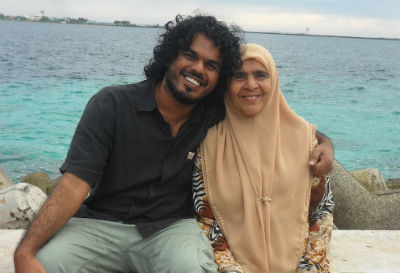Remembering Rilwan
“My pain over losing Rilwan is largely about what could have been: a close friendship; a long, productive relationship in which we could have spent all this time working towards a shared goal and purpose: of making the society we were born into one that is more tolerant, equal and more…loving,” writes Azra Naseem

08 Aug 2016, 09:00
In a few hours, it will be two years since Rilwan was abducted from outside his apartment in Hulhumale’. Gone without a trace for 730 long days. His presence in the hearts and minds of his family and friends remain strong, as does the mark left on society by his sudden absence.
It is hard to imagine what Rilwan’s parents and his siblings go through everyday, missing him as they do. I lost a brother suddenly, to a motorcycle accident, now well over 20 years ago. The shock and pain on my mother’s face when she realised her only son was no longer with her has haunted me ever since. I see the same look on the face of Rilwan’s mother, Aminath Easa, every time I see pictures of her. Haunted, hunted, bereft. The photograph of her and Rilwan sitting on the wall near Raalhugan’du, so obviously delighted to be with each other, is now seared into our collective consciousness—every time I see it, I think of Aminath’s grief. Of my mother’s. Of his sister Shehenaz, who turns her memories of him into poetry. I think of his other siblings, members of his family, young and old, who all speak of him with such love. I think of his father.
How does he bear it?
Recently, a VNews journalist wrote of how he notices Rilwan’s father, Abdulla Moosa, wherever a crowd gathers in Male’. The reporter stopped to ask him why.
Become a member
Get full access to our archive and personalise your experience.
Already a member?
Discussion
No comments yet. Be the first to share your thoughts!
No comments yet. Be the first to join the conversation!
Join the Conversation
Sign in to share your thoughts under an alias and take part in the discussion. Independent journalism thrives on open, respectful debate — your voice matters.




